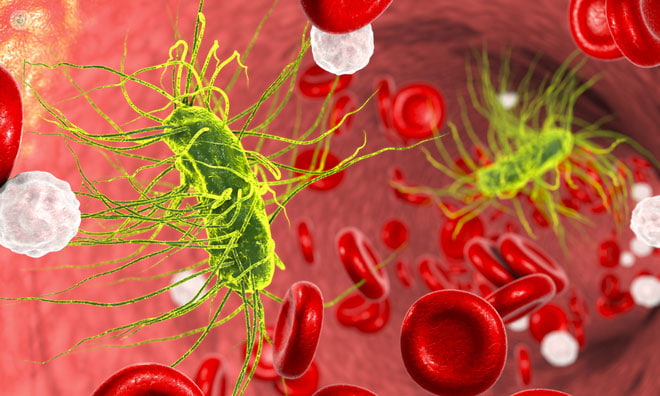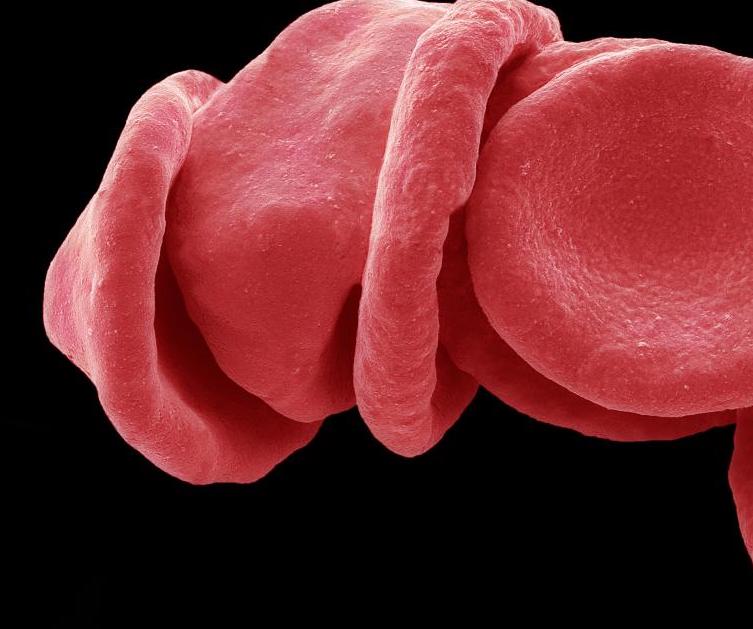It is a bloodstream infection which occurs when a bacterial infection that is present somewhere else in the body, for eg. the lungs or skin, invades the bloodstream (known as bacteremia) and circulates throughout the entire body. It can be dangerous as bacteria and their toxins can be carried via the bloodstream to the entire body. It can be caused by multiple types of bacteria. In medical terms, it is known as “blood poisoning.”
If not treated well, it can lead to sepsis. Sepsis is a life-threatening condition which occurs as a result of the body’s response to an infection. Instead of eliciting an immune response, the chemicals released by the immune system causes inflammation everywhere in the body.

CAUSES OF SLEEPING DIFFICULTIES
It can be caused by infections in the :
- Urinary tract
- Lungs, like pneumonia
- Kidney
- Abdominal areas
- Septicemia
Bacteria that may cause septicemia include Escherichia coli, Pseudomonas aeruginosa, Eikenella corrodens and Haemophilus influenzae in neonates.
After entering the bloodstream, these bacteria multiply rapidly. Along with their toxins, these bacteria are carried to the entire body, due to which they cause several health problems. People who have been admitted to hospital or have undergone any surgery are more susceptible to septicemia.
The possibility of getting septicemia is increased if you :
- Have severe wound or burn
- Are too young or too old
- Have a compromised immune system due to certain medical conditions
- Have a urinary or intravenous catheter
- Are on mechanical ventilation

WHAT ARE THE SYMPTOMS OF SEPTICEMIA?
The symptoms appear quickly after a short period of time. A person looks sick even during the primary stages of the disease. The common symptoms that appear include :
- Chills
- Fever
- Fast respiration and rapid heart rate
As the condition progresses, other symptoms may include :
- Inability to think clearly or confusion
- Nausea and vomiting
- Red dots that appear on the skin
- Reduced urine volume
- Inadequate blood flow
- Shock
If you experience any of these symptoms, then immediately seek medical help. Do not try to treat the symptoms or the condition at home. This may result in serious complications.
WHAT ARE THE COMPLICATIONS OF SEPTICEMIA?
Complications of septicemia include :
- Sepsis : It occurs when the body reacts violently to the infection. It results in a widespread infection all across the body. Severe sepsis would lead to organ failure. The risk of sepsis increases if the individual has chronic diseases. The reason is their immune systems are so weak that they fail to fight off the infection.
- Septic shock : The serious drop in blood pressure which results from toxins that bacteria releases in the bloodstream is known as “septic shock.” It leads to tissue and organ damage. Patients with septic shock need to be in the ICU with help from a breathing machine or even on a ventilator.
- Adult respiratory distress syndrome (ARDS) : A severe case of septicemia results in ADRS. In ADRS, oxygen is prevented from getting to the lung and blood, resulting in permanent damage to the lung and even the brain.

HOW IS SEPTICEMIA DIAGNOSED ?
The diagnosis of septicemia can be challenging.
- Firstly, the doctor needs to understand the cause and type of infection and to what extent has the body been affected. The cause and type of infection can be identified by certain blood tests.
- The extent to which the condition has affected your body can be identified using X-ray, MRI, CT scan, Ultrasound.
- Tests can be performed on different types of fluids in order to detect any kind of bacterial infection, which may include urine, wound secretions and skin sores, respiratory secretions, blood,etc.
- The doctor may look for signs pertaining to conditions such as pneumonia, meningitis, cellulitis,etc.
- Also, monitoring of oxygen and carbon dioxide levels in your blood can be done if there are any breathing issues due to septicemia.
Septicemia
TREATMENT FOR SEPTICEMIA
Treatment can be determined based on the following factors :
- Your age, overall health, and medical history
- Extent of the condition
- Your tolerance for specific medicines, procedures, or therapies
- Expectations for the course of the condition
- Your opinion or preference
Bacterial infections causing septicemia can be treated using antibiotics. Initially,“broad-spectrum” antibiotics are used for a wide range of bacteria. On identification of a specific bacterial type, a more focused antibiotic can be used.
For maintaining a stable blood pressure or to prevent blood clots formation, fluids and other medications can be used. Breathing and other respiratory issues caused by septicemia can be treated using oxygen via a mask or ventilator.

PREVENTION
Septicemia is mainly caused by bacterial infections. At early stages, infections can be treated by the use of antibiotics. The risk of children getting this condition can be prevented by the use of vaccination.
Certain precautions can be taken by those who are immunocompromised, which include :
- Avoid smoking and consumption of illegal drugs
- Eating a healthy diet and regular exercise
- Regular hand washing
- Taking proper care of wounds
- Staying away from people who are sick
If you or anyone you know is suffering from septicemia, consult our specialists today.
Call (469) 545-9983 to book an appointment.
